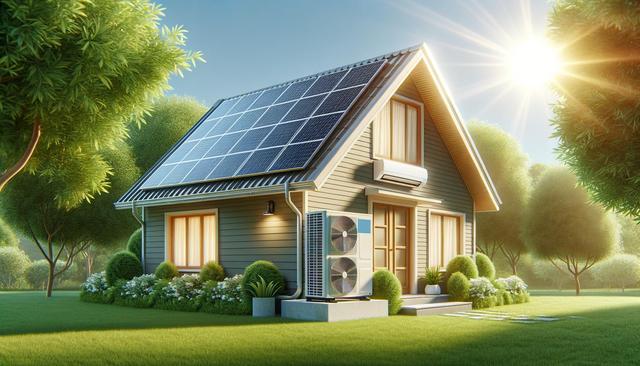Understanding How Solar Air Conditioners Work
Solar air conditioners combine solar energy with conventional air conditioning technology to reduce electricity consumption. These systems typically use photovoltaic (PV) panels to convert sunlight into electricity, which then powers the air conditioning unit. Some models are hybrid, meaning they can switch between solar and grid power depending on the availability of sunlight. This dual functionality ensures consistent cooling without relying entirely on solar power, making them suitable even in areas with inconsistent sun exposure.
Unlike traditional systems that depend solely on fossil-fueled electricity, solar ACs offer a cleaner way to stay cool. The working components may vary slightly across models, but most units include:
- PV panels or collectors
- DC or hybrid compressor units
- Inverter systems for energy conversion
- Battery storage options (in some models)
Understanding this mechanism helps buyers make informed decisions when choosing a system that fits their household size, climate, and budget.
Benefits of Choosing a Solar Air Conditioner
One of the most appealing aspects of solar air conditioners is their potential for long-term savings on electricity bills. By offsetting energy use during peak daylight hours, these units reduce dependency on the grid when electricity rates are often higher. Additionally, solar ACs contribute to a smaller carbon footprint, which is increasingly important for environmentally conscious consumers.
Other notable benefits include:
- Operational cost savings over time
- Lower emissions contributing to eco-friendly living
- Reduced strain on electrical grids during peak hours
- Potential government incentives or rebates for solar installations
These advantages make solar air conditioners a compelling option for both residential and small commercial use.
Evaluating Costs and Affordability
While solar air conditioners may have higher upfront costs compared to traditional units, the total cost of ownership often balances out over time through energy savings. The price varies based on capacity, features, brand, and whether installation includes solar panels or uses existing ones. For those concerned about affordability, evaluating these factors is key.
To explore cost-effective options, consider:
- Entry-level models with lower cooling capacity for smaller spaces
- Hybrid systems that reduce panel requirements
- Units compatible with existing solar panel systems
- Products from manufacturers that offer warranties and maintenance support
Financing options, including solar loans or leasing programs, can further ease the initial investment. Comparing various models and their total lifecycle costs can help identify a unit that aligns with your budget and cooling needs.
Installation Considerations and Requirements
Proper installation is crucial for the efficient functioning of a solar air conditioner. Factors such as roof orientation, available sunlight, and space for solar panels significantly affect system performance. Before purchasing, homeowners should assess their property’s solar potential, either through online tools or professional services.
Key installation considerations include:
- Roof space and angle for optimal panel placement
- Shading from nearby trees or structures
- Local regulations and permitting
- Compatibility with existing electrical systems
In some cases, additional equipment like inverters, batteries, or mounting hardware may be required. Hiring a certified installer ensures compliance with local standards and optimal system setup. Proper installation not only maximizes energy efficiency but also protects your investment over time.
Maintenance and Longevity
Maintaining a solar air conditioner is generally straightforward but essential for long-term performance. Regular cleaning of solar panels, checking electrical connections, and inspecting filters and coils will help ensure efficient operation. Many units are designed to be low-maintenance, with durable components that withstand outdoor conditions.
Routine maintenance tasks may include:
- Cleaning PV panels to remove dust and debris
- Checking refrigerant levels and system pressure
- Replacing or cleaning air filters periodically
- Inspecting battery systems, if applicable
Most systems offer warranties ranging from 5 to 15 years, covering key components. Ensuring adherence to manufacturer-recommended maintenance schedules can extend the lifespan of the unit and preserve energy efficiency.
Conclusion: Making Solar Cooling Accessible
Affordable solar air conditioners are becoming increasingly accessible thanks to advancing technology, wider availability, and supportive financing options. For homeowners looking to reduce their energy bills and environmental impact, these systems present a practical and sustainable solution. By understanding the technology, evaluating costs, and planning for proper installation and maintenance, consumers can make informed decisions that align with both their comfort and budget goals.







